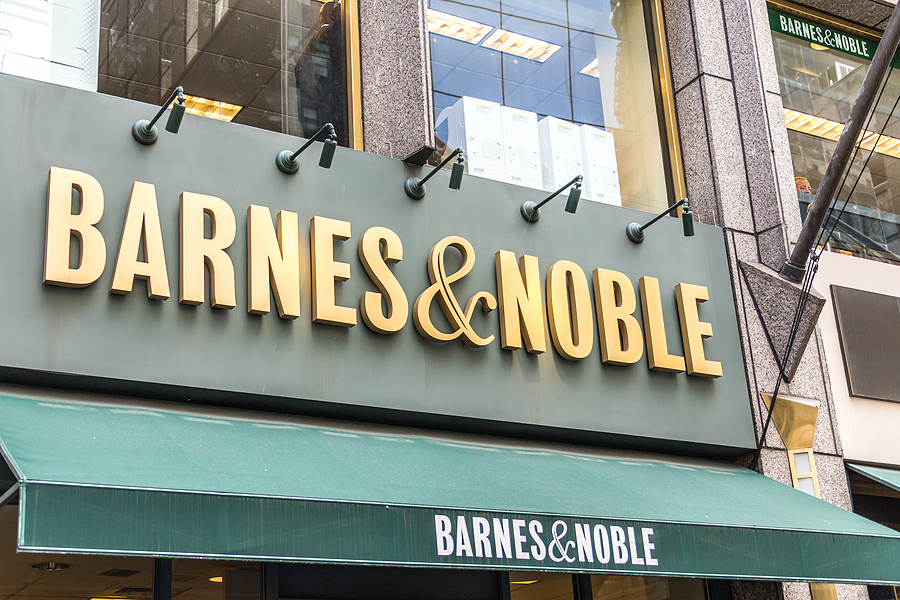The “Your Questions Answered” Series
__________
I am wondering about whether or not to use real names of places in my novel. Is it better to disguise names of towns and cafes or offices? What about popular franchises like MacDonald’s?
When authors write about a town, most inhabitants are thrilled. I wrote Love Finds You in Maiden, North Carolina, and received a warm reception. I enjoyed visiting Maiden too! So, yes, when you are writing about the warmth and charm of a place, making that apparent can be fun for all concerned. If you are writing something gritty and crime-ridden, disguising the location might be better. Think: Gotham is supposed to be New York City.
As for businesses, I mentioned The Tobacco Company in a novel set in Richmond, Virginia, and the editor asked me to change it. However, it’s a real place, so it stayed. (https://www.thetobaccocompany.com/)
As for franchises, I recommend using something generic. You never know how a reader feels about a specific franchise. They may love it or hate it, and those feelings may not follow any logic. Consumerism causes people to form opinions. You may adore a particular brand; but if your reader doesn’t agree, you may lose them. For example:
Does your character drive a Mercedes Benz? This automobile may represent the epitome of style and taste to one reader, but may make your character seem spoiled and out of touch to another. “Luxury sedan” or even “sedan” is good enough here.
What about a Prius? Or a Ford F150? All of these choices cause the reader to judge the character. If you want the car to say something specific about a character, that can be a useful tool. But otherwise, I recommend not making the reader pause over an individual brand. Rather, a generic description makes the reader get to the important part: your story.
Your turn:
When do you think mentioning a specific brand helps? When does it hinder?
Does a brand define a character in your mind? How?
For the entire series, click here: “Your Questions Answered.”



 Learn the Lingo, Part 2
Learn the Lingo, Part 2

Good point about franchises. I can see where some iconic names would be a turnoff for readers. Consumers have definite opinions regarding brands. Ownership often makes statements. For instance, I would never buy a Mini Cooper, but my protagonist did!
I’ll bet your protagonist is adorable!
well, I think so . . .
Thanks for the information, Tamela. I have written two novels set in Annapolis, Maryland and I use real names of places that my characters go. Like you said, when you do that, folks who live there get a kick out of the references. I would think that folks who visit there after reading the book would also enjoy seeing that the locations actually exist.
I agree!
Use of a fictitious name allows the author to build an establishment or a city in my mind. The Gotham example is superb, conjuring up specific mental images planted by the artist, images quite different than those produced by another fictitious city – Mayberry, North Carolina.
Use of an actual city name or business name will elicit responses from me that are beyond the control of the author, and they may not be what the author desires. Indeed, they may be the opposite of what is desired for the story to succeed.
Exactly! By the way, I believe Mayberry was based on the real town of Mount Pilot, NC.
My characters are real to me,
as I hope they’ll be for you,
so you should see the things they see
in the world that they walk through.
They sip lattes at Starbucks,
dine out at Chuck E. Cheese,
run Lexus cars and Chevy trucks
on a thirty-six-month lease.
Their clothes from Nieman-Marcus,
or Wally World sale-aisle,
smoke Camels (now, no PC fuss!)
for which they’d walk a mile.
But once ’twas a dire problem posed;
shopped at Borders, then chain was closed.
Great poem, Andrew! You made me smile.
Tamela,
Good advice. Thanks.
Glad the post was worth your time.
I agree about franchise names. Good or bad experiences with one will color perceptions.
I read one book in which a character drove a RAV4. I had never heard of that make and wasn’t interested enough in it to look it up. The author mentioned this brand repeatedly, so she must have meant it to convey something. But even if I had looked it up, I’m not a car person, so I still would not have known what it was supposed to represent. I know expensive vs.cheap and plain vs. fancy differences in cars, but not much else.
I’ve read books set in towns I have lived in or was very familiar with, and that adds a fun element to a book. But if the setting is a real place, the author needs to include enough detail and references so as to make it seem familiar and not just a generic town. Residents will send unhappy mail or reviews if the town doesn’t truly seem like theirs.
Good point about how authors’ perspectives may not match that of their readers. I happen to enjoy cars, and, coupled with the fact that advertisers think my husband and I match a demographic of “buy or lease a vehicle every three months,” (We buy cars and drive them until they say, “Uncle,” truth be told.), we can’t help but know every brand available. But that doesn’t mean our experience is everyone else’s. Thanks for sharing.
I’ve heard that as long as the brand name is used in a favorable way, it is fine to use it. But your comment about how the reader might feel about a certain brand is insightful. This holds true especially since we write for our reader’s entertainment rather than to call a certain memory to ourselves.
Thanks for answering this question. Your answer is really helpful to me.
I write a weekly blog about a make-believe place in the Ozarks I call “the holler.” The main character is a little old mountaineer with a lot of common sense, who makes wry observations about what’s going on in the outside world. It’s a composite of some real places I’ve been, so I’ve kept the name generic. I’m guessing most folks who travel have seen places just like this. I’m getting positive feedback on it; that tells me it’s working so far.
When you use a particular franchise in your story, I don’t think the readers will set their mind one way or another. Unless they are of the mind that everyone should think the same way they do. If your characters are realistic, they have their own freewill to choose where they want to eat, sleep, shop, etc., just like we do.
As long as the real places, fast food, restaurants, cities, etc. are set in a good light, I believe the reader will want to experience the scene. Maybe even visit there some day. Even if something bad happens in a real place in the story, as long as the place itself isn’t defamed, the reader will be able to separate the bad action or event from the real place. I love using real places in my books. Quite often my readers will identify with the place as somewhere they’ve been themselves.
In my last book published, Treasure in a Field, I used the real town of North Bend, Nebraska as the setting. Bad things did happen to my characters, but when I sent a copy of the book to the people who lived in the town and helped me with my research, they were thrilled to receive it. I did remind them that the story is fiction. They’re smart enough to know it did not put a bad light on the town.
Specific makes and models of cars are also used for various characters in my stories. I try to make those fit the pay grade and life style of the characters. I don’t see the problem, and my readers so far have loved it.
Give your readers credit for knowing that bad things happen everywhere. I’m sure they’re mature enough to realize just because they don’t like a certain restaurant or food, doesn’t mean others don’t like it.
Okay, but what about trademarks? Are writers required to get permission to use a trademark vehicle? Say, a Lexus, or a Chrysler? Jeep? (I’ve been told Jeep is now ‘generic’ enough to not need permission.) Starbucks, Pizza Hut, McDonald’s… do we have to have a signed “okay” from the manufacturer/trademark holder?
I had this problem with my historical novel. I wrote every company that I wanted to mention. Unless I got a specific yes, I did not use the company name. Jeep was a real problem. As you say, it has become very generic. At the other hand, it changes hands so often that permission from one owner might not count as permission from another owner (I’m no lawyer, as you can tell). So, Frank’s Wrangler became the off-roader held together with bailing wire (gross exaggeration by one who wanted to irritate him). As a result, I do not use trade names — for my own protection.
I do enjoy novels where I can identify the setting. It draws me in closer and reels memories for me. I do not mind what artefacts of the rich or poor are mentioned. I always learn from both worlds anyway. I have set some of my stories using real places , buildings and streets and hope my readers from those settings will be drawn in. Then when my stories are set in places where I have never been, I take my readers along with me using made up names etc and putting in endearing life characters that no one takes notice of the kind of Mercedes or bag or whatever! Thanks for the food for thought and God bless you.
Yes! I love it when a story is set in a real town and real life small businesses, parks, hiking trails and whatnot are mentioned. But brands, ugh! Mentioning brands of clothes, music artists (which date your story), or brands of purses and shoes are instantly off-putting to me. One, I don’t usually know what these brands are so I can’t picture them, and then it makes me think maybe the author thinks I should know (though I don’t want to) and that perhaps the book is written for someone else. Someone more fancy schmancy than me. I like it when stylish clothes are described so that I can see and experience them, but not when brands are name-dropped that are meaningless to me.
Thank you Steve Laube for your opinion. If a town is vital to the story such as the location of a specific activity that can’t exist anywhere except on Fort Bragg or the former Twin Towers then it is a must. Correct?
A location may help you to merchandize your book. I think it is a case by case decision. In a story, I have written, the small community is fictional but the Jackson County name and the County Seat are true. I have seen this used by other writers. The location is the backdrop to the story. Finished reading ‘Paperboy’ by Vince Vawter. It had to be Memphis, not Gotham.
Don’t you need to be careful about trademarks and brands? I remember hearing of people in the old days getting letters from Xerox lawyers because some xeroxed a document. Back then Xerox built the only copier so the name became a verb.
Has that changed in today’s world?
Note that I am very cautious. So in my view, yes, it’s a good idea to be careful.
Never disparage a brand in a novel. There are better ways to use our words, and disparaging a brand can definitely cause a problem. If a brand is trademarked, even complimenting it MIGHT open a legal door that could be a big time waster for you.
Years ago, I read the advice, “When in doubt, don’t.” I’ve recalled these words and abided by them in all sorts of situations and never regretted it.
You can invent a new brand but if it’s too thinly disguised, even that could be an issue. For example:
Starbucks: I don’t recommend using their name.
Bucky’s: I don’t recommend using a thinly disguised brand name.
Premium coffee: I’d personally go with this.
“I love the coffee Daphne serves at her cafe,” can also work.
I think it was in the Watergate hearings that someone handed out a set of documents and apologized that there weren’t enough because their xerox machine was down. After a break in the hearing schedule they apologized about the fact that their photocopier wasn’t a Xerox machine.
One of the hospitals I didn’t work for at the time, decided to advertise their urgent care center with the tag, “When you need more than a bandaid.” The billboard didn’t last a week.
Protecting the brand name so it doesn’t become generic like aspirin or refrigerator.
And of course the disappearance of the fake Volkswagen ad on the back cover of Mad magazine in I ink it was ‘73. Oops! Sorry about that Senator Kennedy.
Since I live in Houston and was born in Dallas, many of my novels set in Texas are located in these cities or nearby. Enough detail is included to make a reader familiar with the city feel like he or she is there. Historical novels are usually set in a made up town because it’s easier than having to do so much research to get the town right.
As for brand names, I rarely, if ever, use those just to be on he safe side. Like Kristen said, some of things may date the book or be something with which the reader is not familiar and is off-putting. I love reading about cities and towns I know and have visited, and sometimes, the description of a place makes me want to visit there.
I’m glad you addressed this question as I struggled with using a real town for fear of inaccurate description that would pull a reader out of the story. Most of the story takes place in a different town which I picked a fictional name. I wondered about use of name brands and appreciate your input.